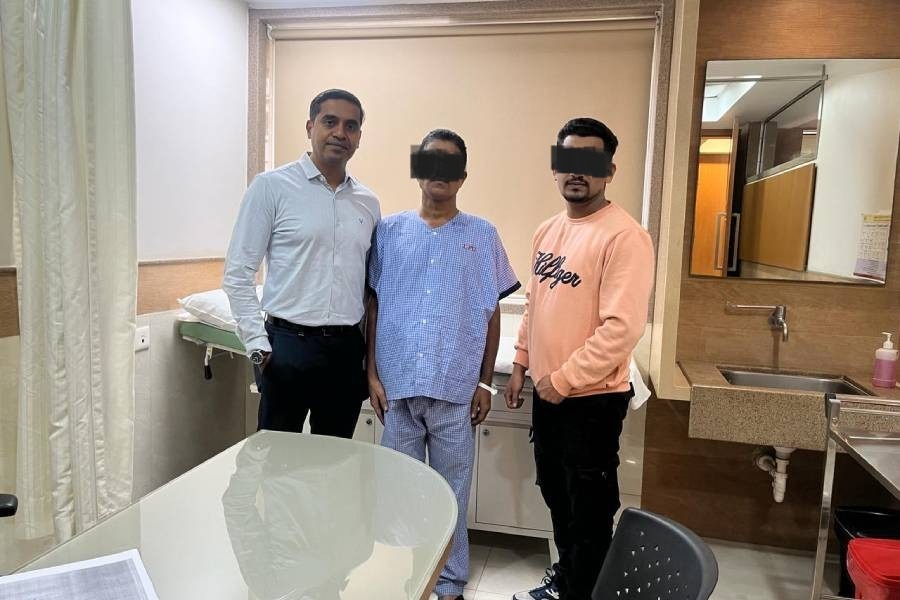Introduction:
Pancreatic cancer is one of the most aggressive cancers. It often goes unnoticed in the early stages. Surgical treatment for pancreatic cancer is considered the best option when the tumour is detected early. Among all surgical procedures, the Whipple procedure, also known as Pancreaticoduodenectomy, is the most common and complex surgery done for pancreatic cancer.
Dr. Manoj Dongare, a cancer specialist in PCMC, has vast experience treating pancreatic and gastrointestinal cancers. With over 300 successful pancreatic resections, he is known as the best surgical oncologist in Pune.
What is the Whipple Procedure?
The Whipple procedure is a major surgery done to remove cancer in the head of the pancreas. In this operation, the surgeon removes the head of the pancreas, the first part of the small intestine (duodenum), the gallbladder, and part of the bile duct. Sometimes, a part of the stomach is also removed.
If done in the early stages, this surgery helps remove the tumour completely and gives a better chance of cure. After the organs are removed, the surgeon reconnects the remaining pancreas, stomach, and intestines to restore normal digestion.
Who Needs the Whipple Procedure?
This surgery is recommended for patients with:
- Tumours in the head of the pancreas
- Ampullary cancer
- Bile duct cancer
- Cancer of the duodenum
- Chronic pancreatitis that is not improving with medication
Not everyone with pancreatic cancer can undergo this surgery. The decision depends on the stage, size, and spread of the tumour. Dr. Manoj Dongare uses advanced imaging tests and expert clinical judgment to decide the best course of action.
Risks Involved in the Whipple Procedure:
The Whipple surgery for pancreatic cancer is complex and demands a high level of skill. Like all major surgeries, it carries some risks.
Short-term risks include:
- Bleeding
- Infection
- Leakage from surgical connections
- Delayed emptying of the stomach
Long-term risks include:
- Digestive problems
- Weight loss
- Risk of developing diabetes
However, in the hands of an expert like Dr. Manoj Dongare, the chances of complications are significantly reduced. He follows strict protocols and uses advanced techniques to ensure patient safety.
Recovery After Whipple Surgery:
Recovery after pancreatic tumor surgery takes time and patience. Most patients stay in the hospital for about 7 to 10 days. During this time, they receive fluids, nutrition, and pain relief.
Post-surgery care includes:
- Gradual introduction to soft and solid foods
- Enzyme supplements to aid digestion
- Regular wound care
- Walking and breathing exercises
After discharge, patients need frequent follow-ups. Full recovery may take a few months. However, with proper care and guidance from the doctor, patients can return to a normal routine.
Dr. Manoj Dongare and his team provide complete post-operative care and emotional support to ensure patients heal well, both physically and mentally.
Success Rate and Life Expectancy After Whipple Surgery:
Success depends on many factors, such as the stage of cancer, the general health of the patient, and the experience of the surgeon. When done early, pancreatic cancer surgery in Pune has shown promising results.
Many patients go on to live a good-quality life after the surgery. With early diagnosis and expert care, life expectancy can improve significantly.
Dr. Manoj Dongare is known for his high success rate in complex cancer surgeries. His patient-first approach and surgical excellence make him a trusted name in pancreaticoduodenectomy and GI cancer care in Pune.
Real Patient Story: Successful Whipple Surgery by Dr. Manoj Dongare:
A 60-year-old gentleman came to our clinic with jaundice. After detailed investigations, imaging revealed a localized tumour in the head of the pancreas. He was referred to Dr. Manoj Dongare, a renowned HPB and Liver Transplant surgeon, for further evaluation and surgical treatment. An Endoscopic Ultrasound (EUS) with biopsy-confirmed pancreatic cancer. A PET scan ruled out metastasis, making him a suitable candidate for surgery.

Dr. Manoj Dongare performed a Whipple procedure (Pancreaticoduodenectomy) successfully. The postoperative period was smooth. There were no signs of pancreatic or biliary leaks. The patient was started on a soft diet by the fifth day and discharged on the 11th day in stable condition.
This case highlights the importance of early detection, precise diagnosis, and expert surgical care. It also reflects Dr. Manoj Dongare’s skill and experience in pancreatic tumor surgery. If you or your family member is seeking pancreatic cancer treatment in Pune, consult Dr. Dongare at Cloverleaf Speciality Clinic, Wakad.
Conclusion:
The Whipple procedure is a life-saving option for patients with early-stage pancreatic cancer. It is a complex surgery, but when performed by an experienced cancer surgeon like Dr. Manoj Dongare, the results can be excellent.
If you or your loved one has been diagnosed with pancreatic cancer, do not delay. Seek advice from a qualified specialist. Early treatment can make a big difference.
Dr. Manoj Dongare, one of the best surgical oncologists in Pune, offers expert care for surgical treatment for pancreatic cancer. He is available at Cloverleaf Speciality Clinic, Wakad, Pune. Book a consultation today for guidance and hope.
Frequently Asked Questions:
Yes, it is a major surgery, and some pain is expected. But with proper medication and care, the pain is managed well.
Initial recovery takes about 10 days in the hospital. Full recovery may take 2 to 3 months.
If the cancer is caught early and fully removed, the surgery can be curative. Regular follow-up and healthy living are important afterwards.

